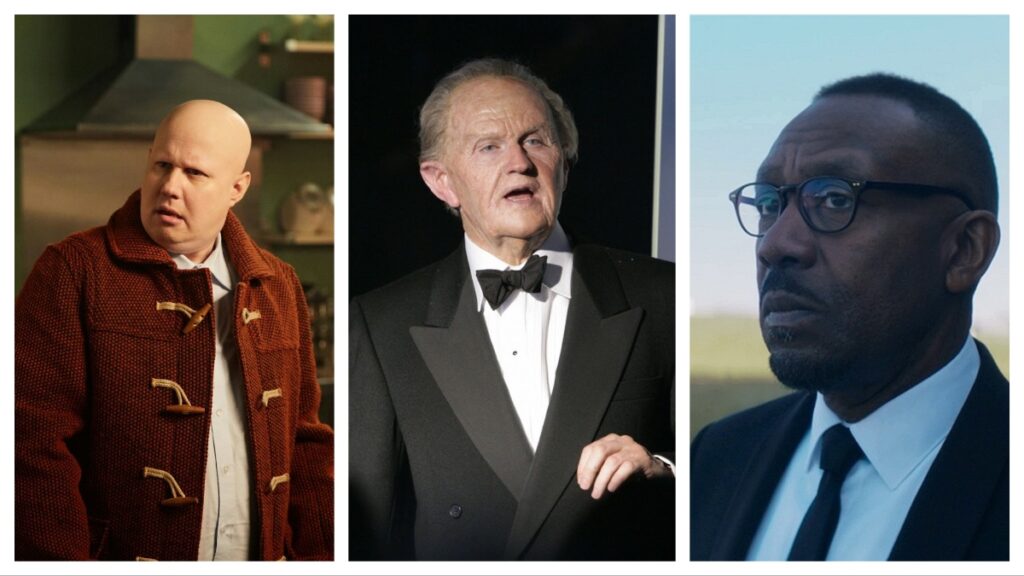
Science fiction often tackles profound philosophical and social themes, offering a unique lens through which to explore humanity and existence. Yet, despite its seriousness, the genre frequently becomes the subject of parody. Among the most spoofed science fiction series is Doctor Who, a show that has inspired countless comedic takes over the years. These parodies, however, often serve a dual purpose: they are not only humorous tributes but also secret auditions for those involved.
The phenomenon of parody as an audition is not new, but in the world of Doctor Who, it has led to some surprising outcomes. From Lenny Henry’s 1985 sketch to Alasdair Beckett-King’s online spoofs, these comedic interpretations have sometimes opened doors to the very universe they lampoon.
The Lenny Henry Show: A Prelude to the Real Deal
In 1985, Lenny Henry took on the role of a parody Doctor in a sketch for The Lenny Henry Show. His version of the Doctor donned a leather jacket, battled Cybermen led by a villainous Cyber Thatcher, and navigated romantic tensions with his companion. While initially a spoof, Henry’s portrayal hit many notes that would later resonate with the “Nu Who” era of the series.
Remarkably, 35 years later, Henry appeared in Doctor Who itself as the villain Daniel Barton in the episode “Spyfall.” His journey from parody to canon highlights how these comedic sketches can sometimes act as stepping stones into the official narrative.
Alasdair Beckett-King and the Art of Spoof
Comedian Alasdair Beckett-King is known for his online sketches, including the popular Every Episode of Popular Time Travel Show. Despite his self-professed lack of encyclopedic knowledge of Doctor Who, Beckett-King’s parody captured the essence of the show, blending humor with a genuine appreciation for its quirks.
In an interview, Beckett-King admitted, “I suppose I did end up playing the Doctor as quite like myself, more due to a lack of acting range than a deliberate attempt to place my stamp on the character.” His sketch eventually led to a role in the BBC audio series Doctor Who: Redacted, where he played a comic character with a serious approach.
The Influence of Inspector Spacetime
Inspector Spacetime began as a brief gag in the sitcom Community, yet it quickly became a beloved parody of Doctor Who. Although none of the actors from the parody have appeared on Doctor Who, the show-within-a-show’s influence is evident. Matt Lucas, who played an Inspector Spacetime superfan, later became the Doctor’s companion Nardole.
Doctor Who Night and the Wilderness Years
During the “Wilderness Years” of Doctor Who—the period between the original series’ end and its revival—parody played a crucial role in keeping the show’s spirit alive. BBC2’s Doctor Who Night in 1999 featured sketches by Mark Gatiss and David Walliams, including “The Web of Caves,” a humorous take that doubled as an audition for Gatiss.
Both Gatiss and Walliams later contributed to the revived series, with Gatiss writing several episodes and Walliams appearing as an alien character. These sketches served as a bridge between the show’s past and its future, showcasing the enduring appeal of its universe.
Curse of the Fatal Death: A Blueprint for Success
The 1999 Comic Relief sketch The Curse of the Fatal Death remains one of the most successful Doctor Who parodies. Written by Steven Moffat, it featured Rowan Atkinson as a new “Ninth” Doctor and included multiple regenerations, foreshadowing future plotlines in the revived series.
Notably, Moffat’s parody contained elements that would later appear in his tenure as showrunner, such as the Doctor facing the Master and Daleks simultaneously and the concept of “Timey Wimey” plots. Moffat’s journey from parody writer to showrunner underscores the significant role these comedic sketches play in shaping the show’s legacy.
Parodies of Doctor Who have not only entertained audiences but also served as unofficial auditions for those involved. By blending humor with homage, these sketches have opened doors, allowing comedians and writers to transition from fans to contributors in the beloved universe of Doctor Who.







